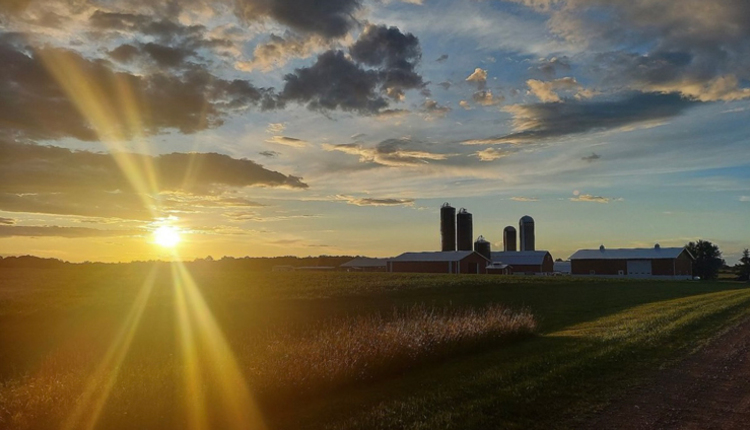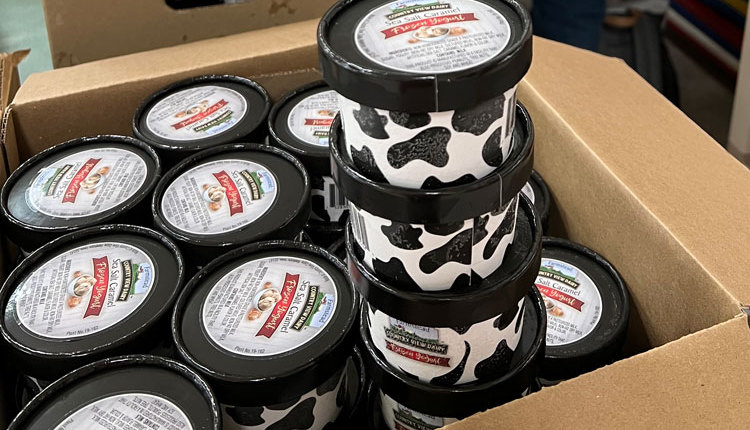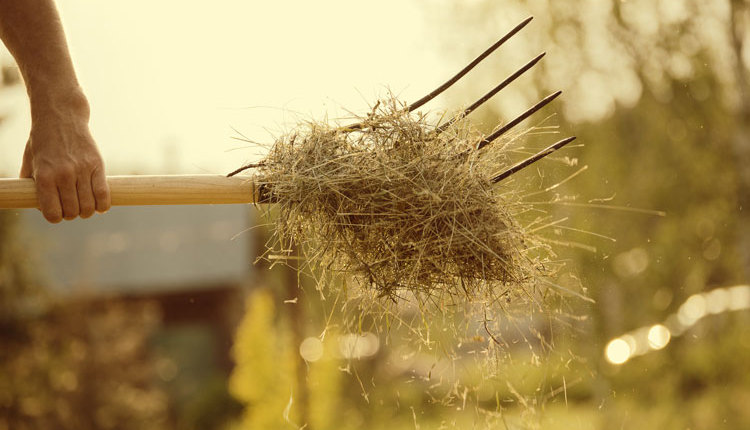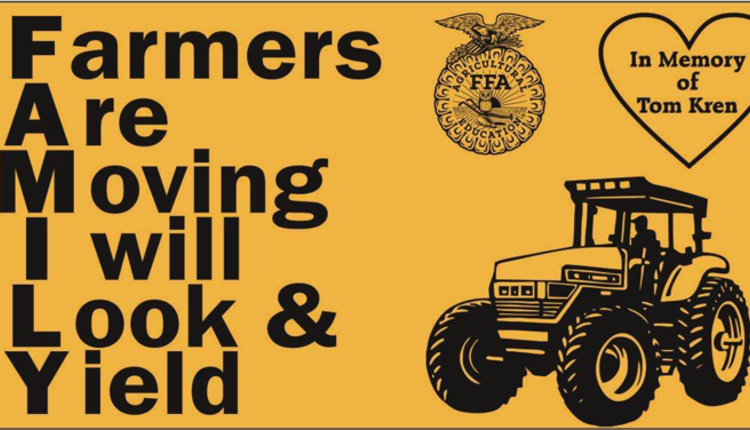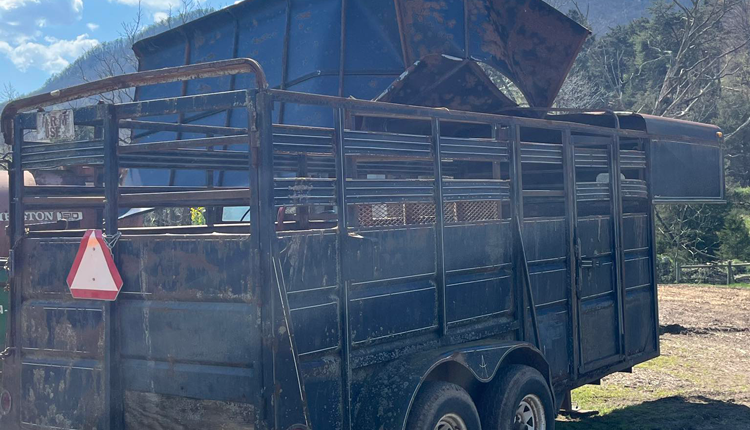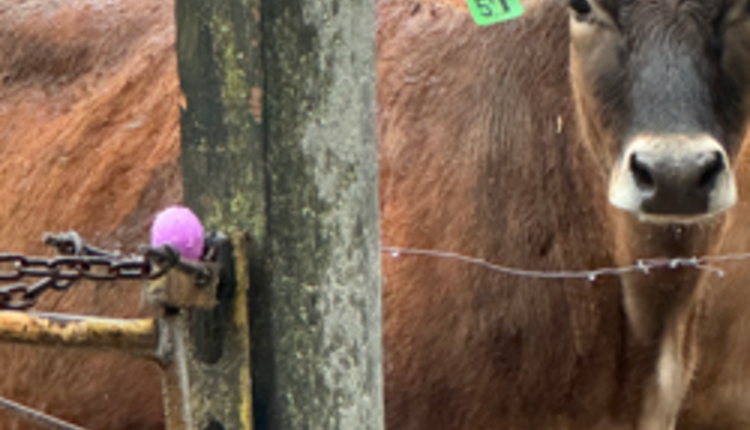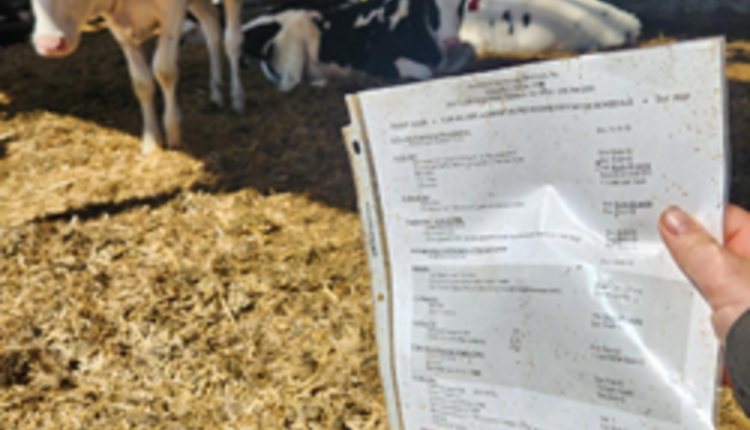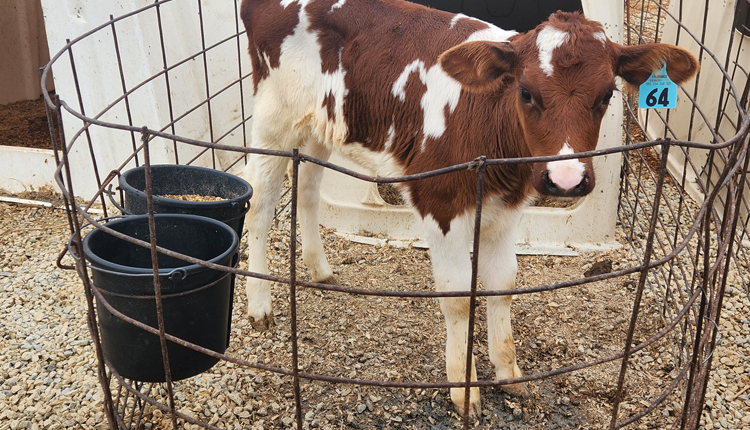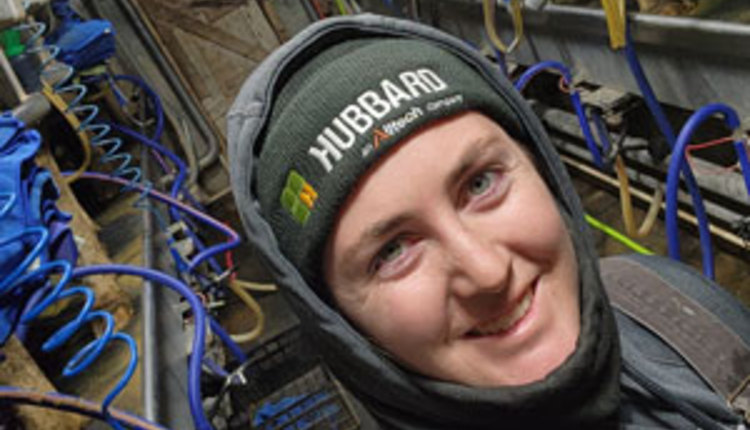This blog was originally posted December 7, 2015 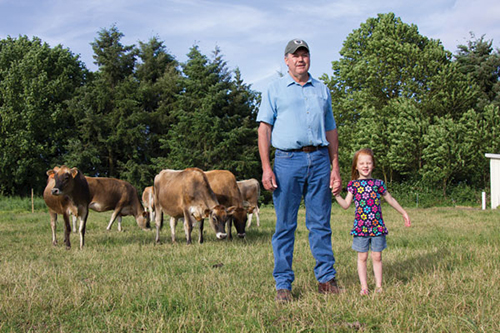
I was 16 or 17 years old, and my dad sent me out with the John Deere tractor and hayforks to pick up straw bales sitting on the edge of a field. There were only six bales, but they had been rained on and were in less than ideal condition. I fought those bales for 30 or 45 minutes going from mildly irritated to irate to tears.
By the time my dad showed up to assist, I had broken three of the bales and was working on my fourth. I was furious, but I was learning. Specifically, I was learning resiliency. My dad crawled in the cab, and although I wanted nothing more than to hand over the controls, he made me stay in the driver's seat and talked me through picking up the last three nearly destructed bales to get them up to the barn.
Since the beginning of the fall semester, I have watched many comments come across my Facebook newsfeed discussing why college students aren't as able to handle the pressure of college education today. A Psychology Today blog titled "Declining Student Resilience: A Serious Problem for Colleges" discussed this most directly.
In it, Dr. Peter Gray, a research professor at Boston College, lays out the framework for an argument that the sheltered nature of young people today has led to their inability to function in a higher learning environment. Specifically, he discusses the plague of emotional crises that have overwhelmed college counseling services in the past several years. Many of these he deemed common, everyday challenges. Gray said, "We have raised a generation of young people who have not been given the opportunity to learn how to solve their own problems."
As a recent college graduate, there's no doubt that I encountered some students that behaved in the same manner described in the Psychology Today blog. On the other hand, many of my agriculture classmates, particularly those from farming backgrounds, were better equipped to ride the waves of college and find ways to solve their own problems.
In a large way, this is to the credit of their farming background. Those hours and hours of fighting soggy straw bales and uncooperative calves taught them to buckle down and persist. Farm kids learn to adapt to failure, enjoy success and use duct tape when all else fails.
 The author is the Special Publications editor. She is responsible for development and marketing of books and plans, as well as coordinating internal communication pieces. Maggie was raised on a 150-cow dairy near Valley Center, Kan. and graduated from Kansas State University with degrees in agricultural communications and animal sciences.
The author is the Special Publications editor. She is responsible for development and marketing of books and plans, as well as coordinating internal communication pieces. Maggie was raised on a 150-cow dairy near Valley Center, Kan. and graduated from Kansas State University with degrees in agricultural communications and animal sciences.

I was 16 or 17 years old, and my dad sent me out with the John Deere tractor and hayforks to pick up straw bales sitting on the edge of a field. There were only six bales, but they had been rained on and were in less than ideal condition. I fought those bales for 30 or 45 minutes going from mildly irritated to irate to tears.
By the time my dad showed up to assist, I had broken three of the bales and was working on my fourth. I was furious, but I was learning. Specifically, I was learning resiliency. My dad crawled in the cab, and although I wanted nothing more than to hand over the controls, he made me stay in the driver's seat and talked me through picking up the last three nearly destructed bales to get them up to the barn.
Since the beginning of the fall semester, I have watched many comments come across my Facebook newsfeed discussing why college students aren't as able to handle the pressure of college education today. A Psychology Today blog titled "Declining Student Resilience: A Serious Problem for Colleges" discussed this most directly.
In it, Dr. Peter Gray, a research professor at Boston College, lays out the framework for an argument that the sheltered nature of young people today has led to their inability to function in a higher learning environment. Specifically, he discusses the plague of emotional crises that have overwhelmed college counseling services in the past several years. Many of these he deemed common, everyday challenges. Gray said, "We have raised a generation of young people who have not been given the opportunity to learn how to solve their own problems."
As a recent college graduate, there's no doubt that I encountered some students that behaved in the same manner described in the Psychology Today blog. On the other hand, many of my agriculture classmates, particularly those from farming backgrounds, were better equipped to ride the waves of college and find ways to solve their own problems.
In a large way, this is to the credit of their farming background. Those hours and hours of fighting soggy straw bales and uncooperative calves taught them to buckle down and persist. Farm kids learn to adapt to failure, enjoy success and use duct tape when all else fails.
 The author is the Special Publications editor. She is responsible for development and marketing of books and plans, as well as coordinating internal communication pieces. Maggie was raised on a 150-cow dairy near Valley Center, Kan. and graduated from Kansas State University with degrees in agricultural communications and animal sciences.
The author is the Special Publications editor. She is responsible for development and marketing of books and plans, as well as coordinating internal communication pieces. Maggie was raised on a 150-cow dairy near Valley Center, Kan. and graduated from Kansas State University with degrees in agricultural communications and animal sciences. 
